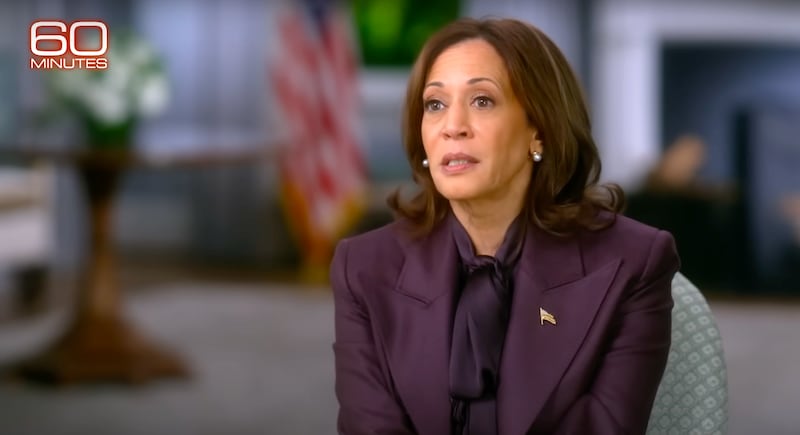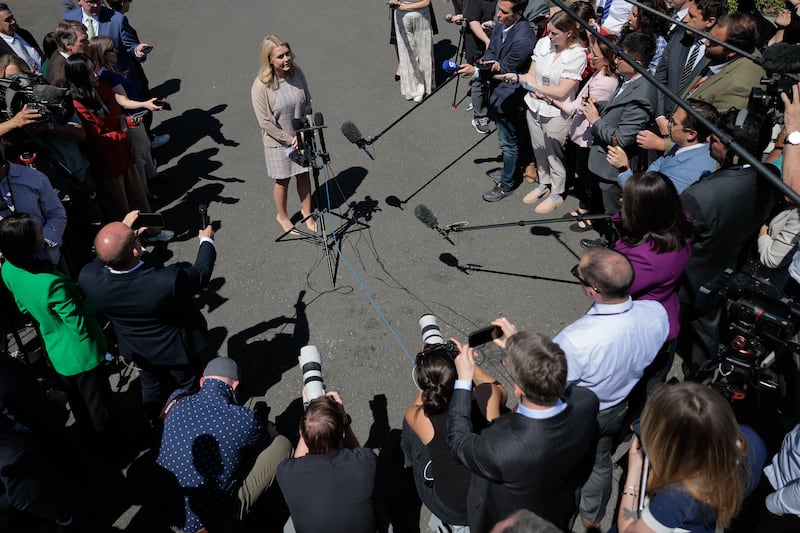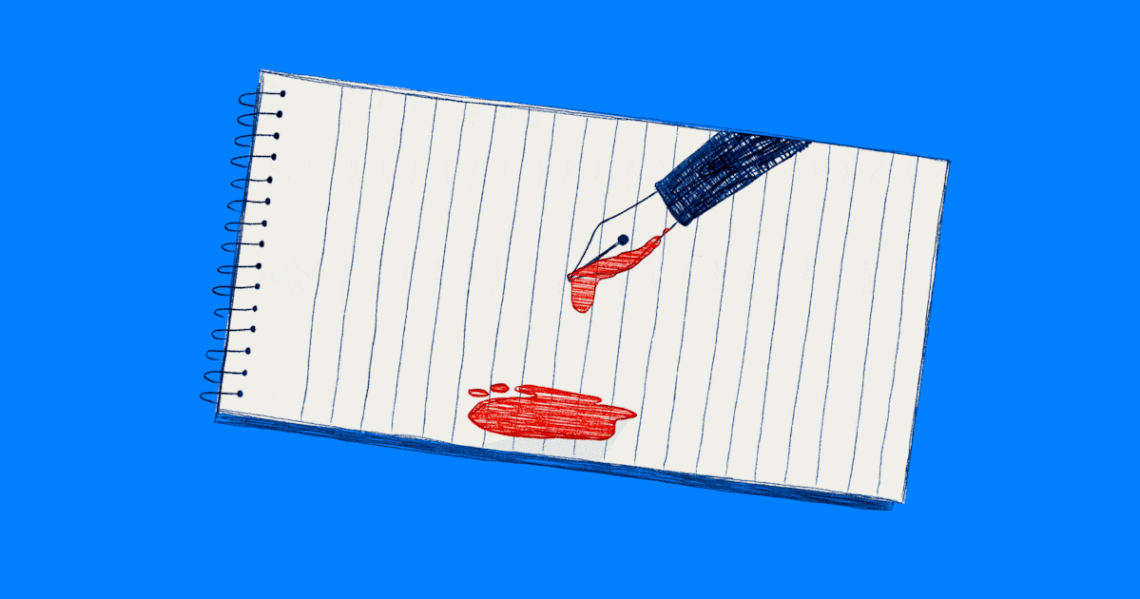Soon after President Donald Trump’s re-election last November, press freedom experts began warning, both privately and publicly, that his second administration would be bad for the First Amendment.
But nearly 100 days into Trump’s term, they say the situation has deteriorated to a far greater extent than they had feared.
The assault “marks a new chapter in the story of press freedom in the United States,” said Seth Stern, advocacy director at the Freedom of the Press Foundation. “It’s worse than most of us expected, and our expectations were not high.”
Besides Trump’s ongoing lawsuits against CBS and The Des Moines Register, both of which he filed before inauguration, the administration has blocked media access at the White House; unleashed the Federal Communications Commission on news outlets; supported efforts to cut federal funding from NPR and PBS; worked to dismantle Voice of America (where I covered press freedom from 2021 to 2025) and its sister outlets; and continued to throw around the rhetoric that has long characterized his hostile relationship with the mainstream media.
Just last week, instead of restoring press pool access to The Associated Press, as ordered by a federal judge, the White House axed the wire position in the daily press corps rotation altogether. (The AP has been blocked from White House events, as well as the Oval Office and Air Force One, over the news agency’s decision to retain usage of the “Gulf of Mexico” name to refer to the body of water Trump renamed the Gulf of America in a January executive order.)
Taken together, press freedom experts say the administration’s actions constitute an all-out war on the media—and underscore an apparent shift in the direction of authoritarianism.
Administration officials have presented this debate as over the practices and privileges of journalists, according to Kathy Kiely, chair in free press studies at the University of Missouri. Many of these attacks take aim at standard news gathering and editorial practices, which suggests an effort to at minimum stigmatize—and at most criminalize—how journalism works. But they are also about the freedom of the American people to know what’s going on in the government.

Most Americans don’t have time to keep tabs on their city council or state government or Congress and the White House every day. That means when the freedoms of journalists are constricted, “our freedom to know is inhibited,” Kiely said. “And therefore our freedom to make intelligent decisions, to debate among ourselves, is inhibited.”
The United States has long been considered a beacon for press freedom and democracy, according to Kiely. “We are rapidly careening toward being exactly the opposite,” Kiely said. “It’s hard to be more alarmist.”
The White House did not reply to an email requesting comment.
These attacks on the media have been multifaceted and evoke comparisons to autocratic countries like Hungary and Russia, where journalists face steep political, legal and economic pressure for independent reporting, according to media watchdogs. Some tactics mark escalations of existing trends, while others are entirely new, according to Stern.
“I don’t think other presidents particularly liked the press either, but I don’t think [they] had the nerve to try this stuff,” Stern said. “Trump has made a political calculation that he can get away with this, and we’re waiting to see if he’s right.”
Clayton Weimers, U.S. director at the Paris-based non-profit Reporters Without Borders, said Congress has been asleep at the wheel. He hopes legislators do more to exert their power, in response to the Trump’s administration’s efforts to dismantle Voice of America and its sister outlets, which are Congressionally funded but editorially independent.
“That’s funding that Congress allocated,” Weimers said. “They should be furious that the executive branch has essentially overruled their authority.” (Reporters Without Borders has joined a lawsuit filed by VOA journalists, including my editor, in response to the attempted demolition of the news outlet.)
The assault on press freedom in the United States bodes poorly for democracy at home—as well as abroad, according to Weimers. “The knowledge that the United States is no longer invested in these issues is definitely going to embolden some of the bad actors to act more freely,” he said.

More broadly, the attacks on the press are intertwined with the administration’s attack on the rule of law, according to Stern.
“He is going after the media because the free press undermines his effort to destroy the rule of law in the United States and sort of bend our democracy to his will,” Stern said of Trump
Trump’s Internal Revenue Service is, for instance, reportedly considering revoking Harvard’s tax-exempt status amid the administration’s attack on the university and higher education. It’s not a stretch, according to Stern, to worry that the IRS could take similar action against non-profit news outlets.
Challenges to the flow of independent news can have concrete consequences for the daily lives of people around the country, according to Kiely.
Journalists inform the public about everything from measles outbreaks and food safety precautions to how the government handles their private information and what donors are supporting their elected representatives, she said.
“Journalists are really proxies for the general public,” Kiely said. “The ultimate beneficiary here is the American people.”
The post Opinion: Free Speech Warrior? Trump’s Brazen Attacks on the First Amendment Can’t Go Unchallenged appeared first on The Daily Beast.




